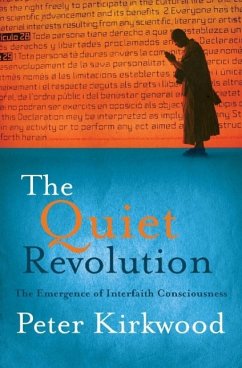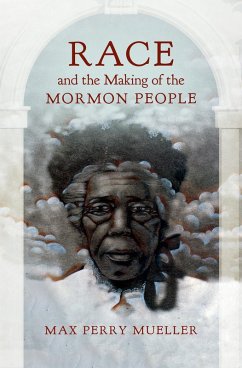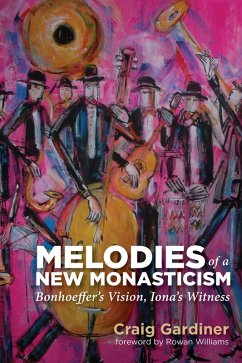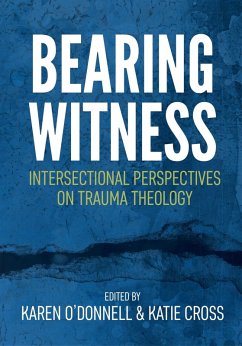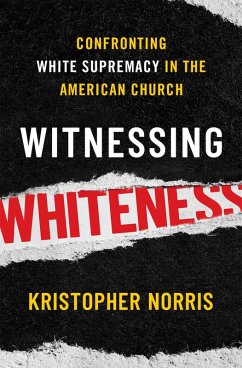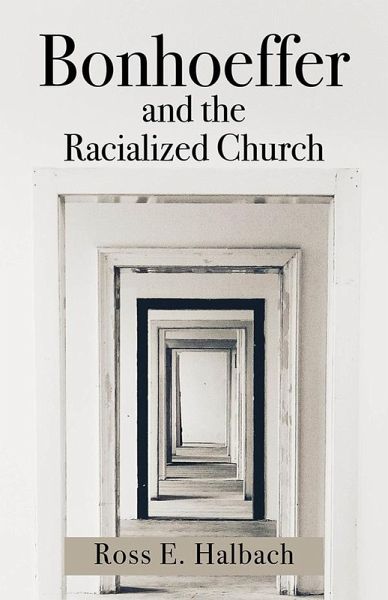
Bonhoeffer and the Racialized Church (eBook, ePUB)

PAYBACK Punkte
19 °P sammeln!
How do we remain faithful to and work within a Christian church that has been historically complicit in racism and that still exhibits racist actions in its communal life? While there have been numerous recent accounts addressing why the Christian church of the West is marked by racism and whiteness, there has been less attention given to how we reconcile the church's racial inequities with the belief that God works through God's people.In Bonhoeffer and the Racialized Church, Ross Halbach seeks to reframe the question within Dietrich Bonhoeffer's conception of the "ultimate and penultimate." ...
How do we remain faithful to and work within a Christian church that has been historically complicit in racism and that still exhibits racist actions in its communal life? While there have been numerous recent accounts addressing why the Christian church of the West is marked by racism and whiteness, there has been less attention given to how we reconcile the church's racial inequities with the belief that God works through God's people.
In Bonhoeffer and the Racialized Church, Ross Halbach seeks to reframe the question within Dietrich Bonhoeffer's conception of the "ultimate and penultimate." Bonhoeffer's acute sense of God's continual speaking offers a prophetic challenge to the church: instead of masking the realities of racial sin or pursuing easy resolution, we must confront the full consequences of whiteness in repentant expectation of Christ's coming. Halbach places the writings of Bonhoeffer into dialogue with the contemporary writings of Willie Jennings, J. Kameron Carter, and Brian Bantum, allowing these various perspectives to augment one another. This approach gives new clarity to present theological discussions of race through a consideration of God's regenerative work.
Discussions of race must move from seeking a diagnosis to exploring a dialogue that delves deeper into the issue. Racism is not a question to be answered but a resistance that hinders the church from hearing God's present call, which is given to the body of Christ through baptism and Eucharist. The church's response to God's call is found not in the assurance of a solution but in the obedient act of the church's participation with Christ in preparing the way for the church to hear how the triune God has already spoken and continues to speak today.
In Bonhoeffer and the Racialized Church, Ross Halbach seeks to reframe the question within Dietrich Bonhoeffer's conception of the "ultimate and penultimate." Bonhoeffer's acute sense of God's continual speaking offers a prophetic challenge to the church: instead of masking the realities of racial sin or pursuing easy resolution, we must confront the full consequences of whiteness in repentant expectation of Christ's coming. Halbach places the writings of Bonhoeffer into dialogue with the contemporary writings of Willie Jennings, J. Kameron Carter, and Brian Bantum, allowing these various perspectives to augment one another. This approach gives new clarity to present theological discussions of race through a consideration of God's regenerative work.
Discussions of race must move from seeking a diagnosis to exploring a dialogue that delves deeper into the issue. Racism is not a question to be answered but a resistance that hinders the church from hearing God's present call, which is given to the body of Christ through baptism and Eucharist. The church's response to God's call is found not in the assurance of a solution but in the obedient act of the church's participation with Christ in preparing the way for the church to hear how the triune God has already spoken and continues to speak today.
Dieser Download kann aus rechtlichen Gründen nur mit Rechnungsadresse in A, D ausgeliefert werden.





